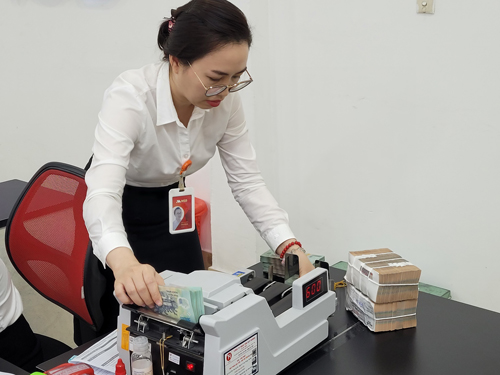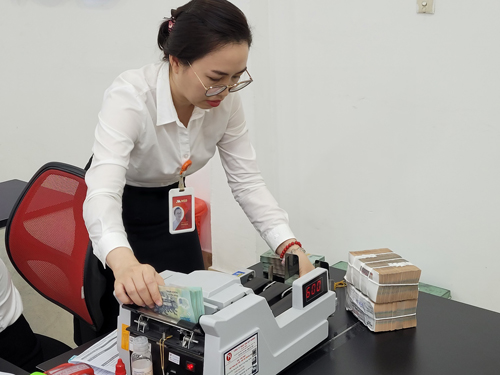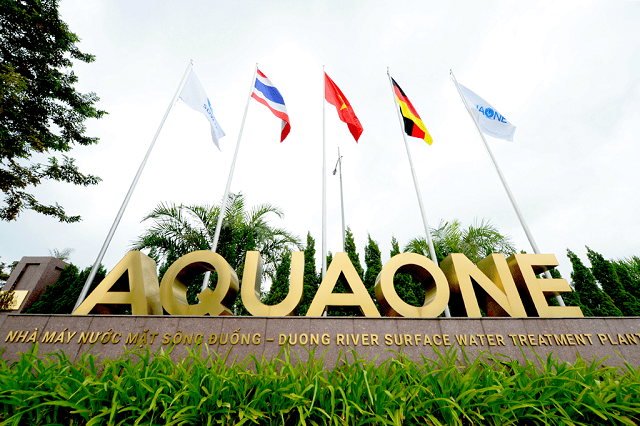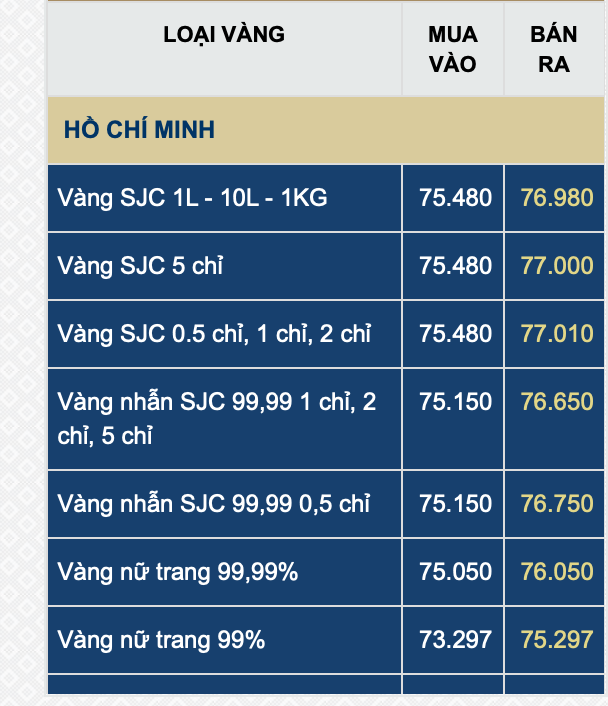Commercial banks are currently racing to sell off collateralized assets to recover debts, according to our journalist’s investigation. The assets up for sale include land plots, houses, apartments, vehicles, machinery, equipment, and even stocks and future assets, in addition to the more typical collateral.
Proactive bad debt management
VIB, or the International Bank, is in the process of dealing with a significant number of real estate-related assets across various provinces and cities. These assets include apartments, residential land, private houses, and agricultural land. Meanwhile, Agribank, the Vietnam Bank for Agriculture and Rural Development, has recently put up for sale the entire debt of over VND 58.8 billion in principal and interest owed by NHP Export-Import Production JSC. Notably, this loan is secured by 1 million NHP shares with a face value of VND 10,000 per share.
BIDV, the Bank for Investment and Development of Vietnam, has also announced its selection of an organization to auction off the debt of Hang Ha JSC, which is secured by the entirety of the assets formed from the Duc Giang International Obstetrics and Gynecology Hospital project in Hanoi.

Bad debt management and disposal of secured assets remain challenging for commercial banks. Photo: TAN THANH
At a recent seminar on bad debts held in Ho Chi Minh City, Dr. Nguyen Quoc Hung, Secretary-General of the Vietnam Banks Association (VNBA), acknowledged the banking industry’s efforts but pointed out that bad debts continue to rise due to prolonged economic difficulties. The State Bank of Vietnam has extended the debt restructuring deadline for individuals and businesses until the end of 2024, providing relief and opportunities for debt recovery. However, Dr. Hung cautioned that bad debts could surge rapidly if the real estate market remains challenging and transactions limited.
According to the State Bank of Vietnam’s consolidated data, the system’s on-balance-sheet bad debt ratio stood at 4.56% at the end of June 2024, up from 2.03% at the end of 2022. The total on-balance-sheet bad debt, bad debt at the Vietnam Asset Management Company (VAMC) yet to be handled, and potential bad debt of the system exceeded 6.4%.
Mr. Le Trung Kien, Deputy Director of Department 4, the State Bank of Vietnam’s Inspection and Supervision Agency, noted that while the total on-balance-sheet bad debt, bad debt at VAMC yet to be handled, and potential bad debt of the credit institution system have decreased compared to 6.9% at the end of 2023, it has increased compared to 4.21% at the end of 2022.
Mr. Dao Minh Tu, Permanent Vice Governor of the State Bank of Vietnam, attributed the current bad debt situation to various factors, including the post-COVID-19 pandemic period. He emphasized that bad debts result from multiple objective economic factors and not solely from the shortcomings of the banking industry. Mr. Tu assured that the State Bank of Vietnam would take more proactive measures to ensure credit quality, control and reduce the bad debt ratio, and strengthen provisions to safeguard the system’s stability.
Overcoming challenges in asset disposal
Banks are facing challenges in debt recovery. Mr. Do Giang Nam, Head of the VNBA Debt Handling Club and a member of VAMC’s Board of Members, shared that real estate accounts for approximately 70% of total collateral for loans, reaching up to 80%-90% in some banks. With the real estate market in a slump and liquidity weak, even with banks aggressively liquidating assets to recover debts, it remains challenging, and prices often have to be slashed multiple times to attract buyers.
VAMC has been working closely with credit institutions to implement synchronized measures to handle purchased debts, including debt collection and restructuring. They have also initiated legal actions, executed judgments, sold debts and collateral, and organized auctions.
However, some critical provisions in Resolution 42/2017 of the National Assembly, which piloted bad debt handling, were not incorporated into the 2024 Law on Credit Institutions. This has restricted the rights of debt-handling entities. Specifically, while the 2024 Law on Credit Institutions introduced provisions on handling bad debts and collateral, it lacked a provision on the right of banks to seize collateral. The Civil Code and its guiding documents only stipulate the obligation of the collateral holder to hand over the collateral to the secured party, without granting the secured party the right to proactively seize the collateral.
“The expiration of Resolution 42/2017 has created a legal vacuum and a lack of mechanisms for credit institutions to seize collateral. Local authorities and the police also lack a legal basis to support collateral handling as they did before. As a result, if customers refuse to hand over the assets, banks must resort to legal proceedings to handle bad debts, leading to prolonged processes and increased costs,” analyzed Dr. Nguyen Quoc Hung.
To accelerate bad debt handling and recovery, preventing it from becoming a “blood clot” in the economy, banks have proposed amendments to grant the secured party of a non-performing loan the right to seize the collateral. This would also help eliminate the stalling tactics employed by customers and asset owners during the collateral handling process. Additionally, they suggested introducing provisions on the coordination and support of local authorities and the police with banks in seizing collateral for non-performing loans.
Bad debt ratio not excessively high compared to the region
According to a recent report by Maybank Securities, many listed banks have relaxed their loan loss provisions in the second quarter of 2024. While the bad debt ratio remained unchanged from the previous quarter, the debt restructuring ratio increased, and the bad debt coverage ratio decreased from 94% at the end of last year to 83%. Mr. Quan Trong Thanh, Director of the Analysis Division at Maybank Securities, identified that overdue debts of small and medium-sized enterprises in the trading, steel, and other sectors have contributed to the rise in bad debts. He noted that improving the bad debt ratio remains challenging and depends on the recovery of these enterprises. However, the current bad debt ratio of Vietnamese banks is not excessively high compared to the Southeast Asian region, with 11 listed banks reporting acceptable bad debt ratios.
Overcoming Challenges in Dealing with Bad Debts
In the newly passed Revised Securities Law, securities companies (SCs) no longer have the privilege to hold collateral. Therefore, SCs need to recognize that debt collection is their responsibility, and they should be extremely strict in assessing borrowers, ensuring compliance with principles, procedures, and conditions before granting loans.
Reflecting on a year of free-falling interest rates
Savings interest rates in 2023 witnessed a race to the lowest levels in 20 years, dropping from a peak of 12% per year for the 12-month term in early 2023 to below 5% per year by the end of the year. Let’s take a closer look at the unprecedented interest rate developments of the past year with Tiền Phong.


















